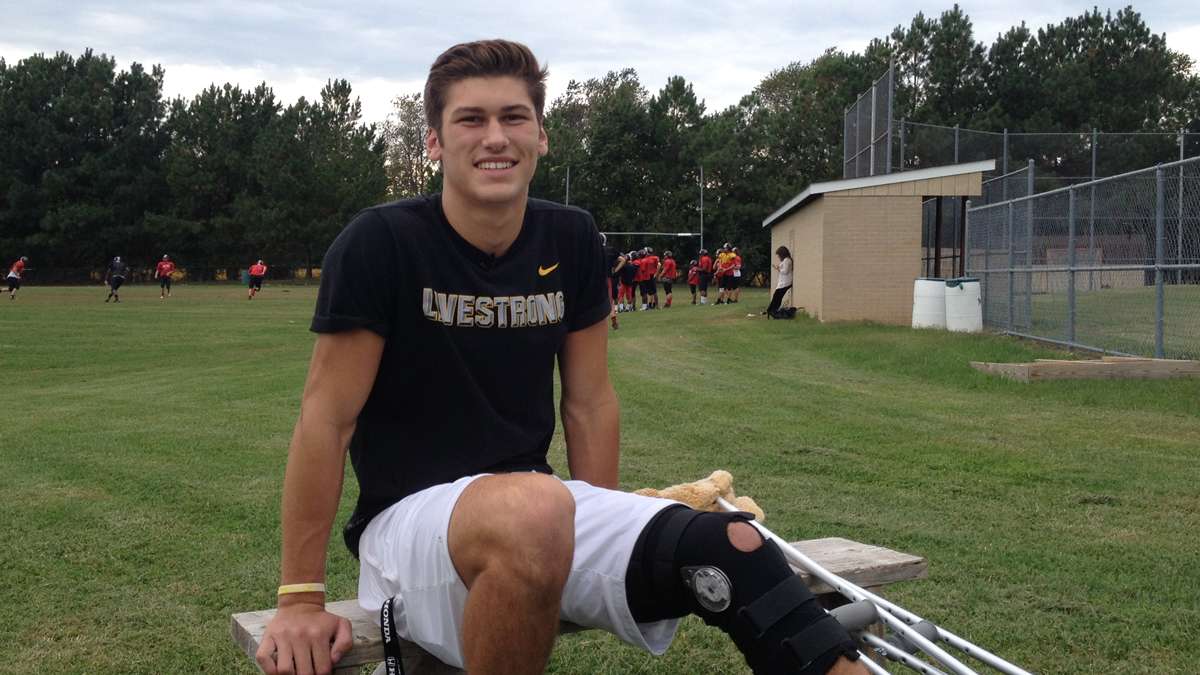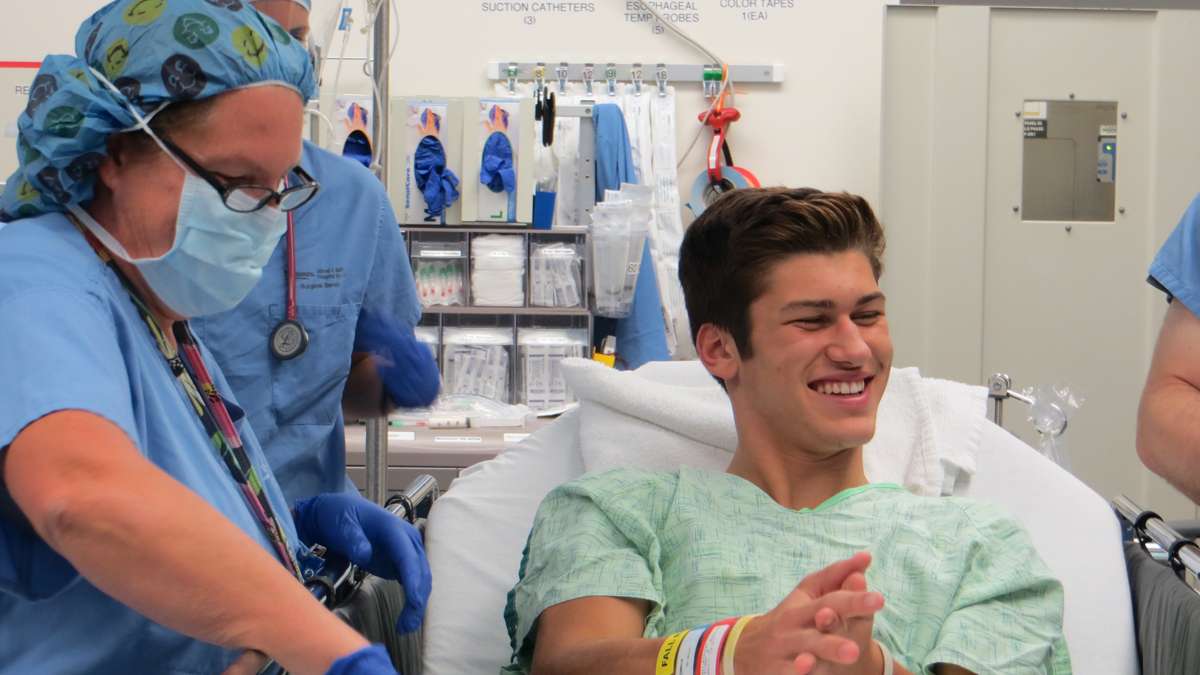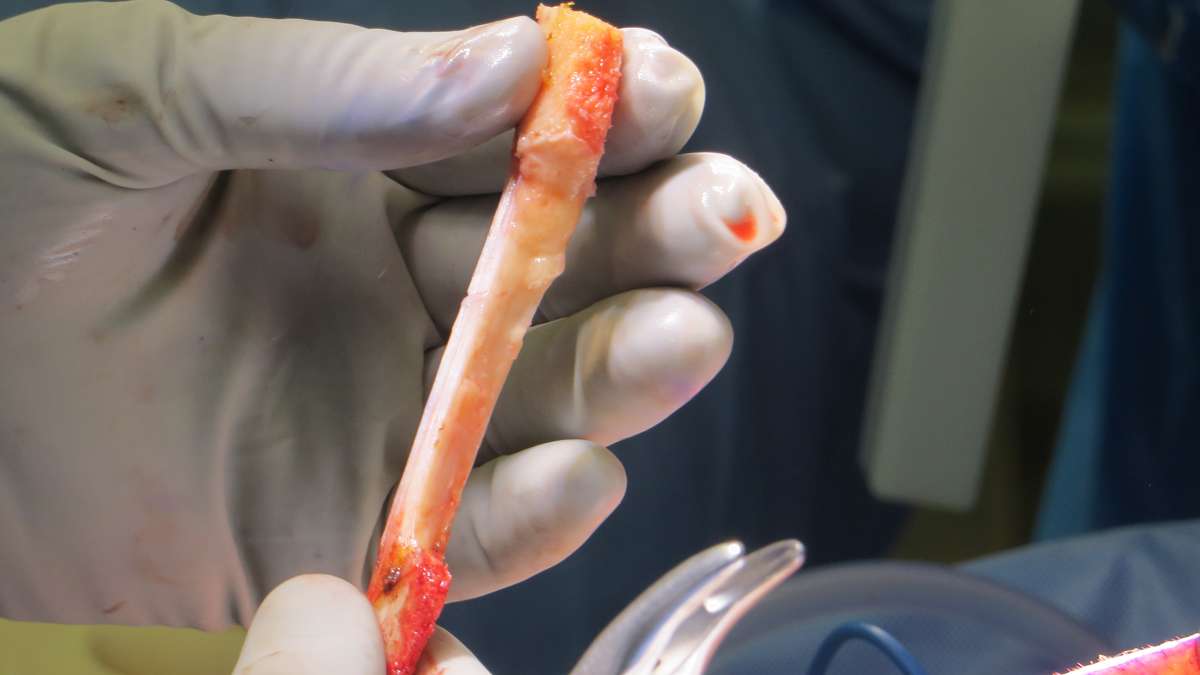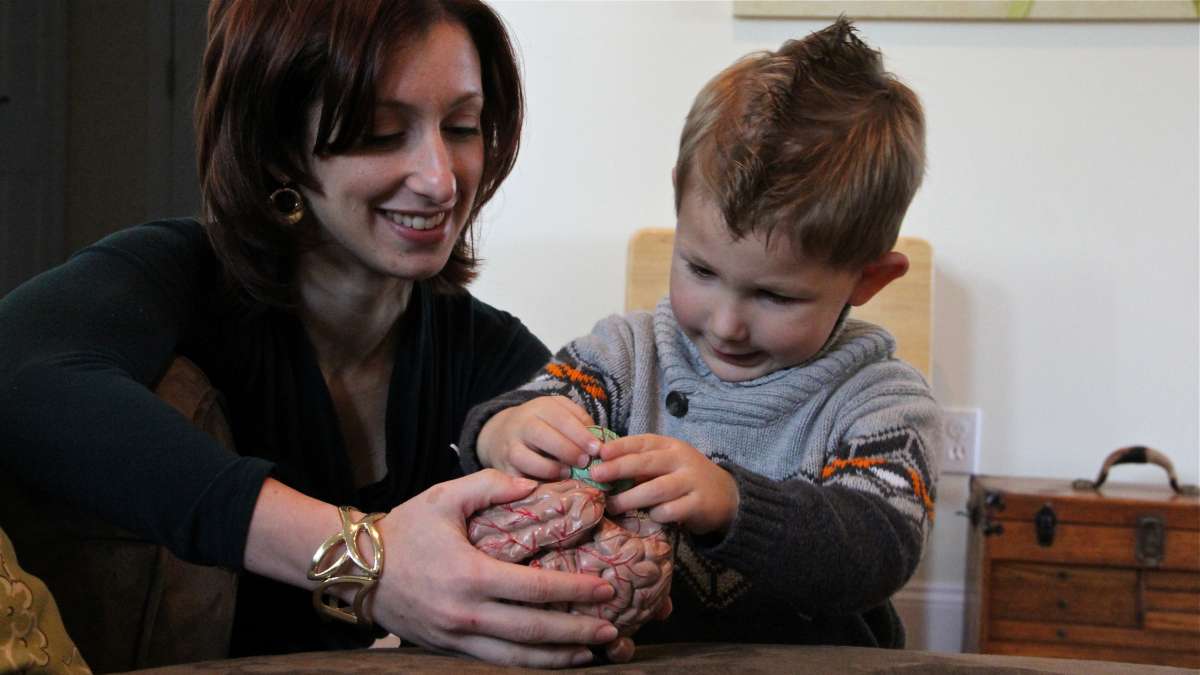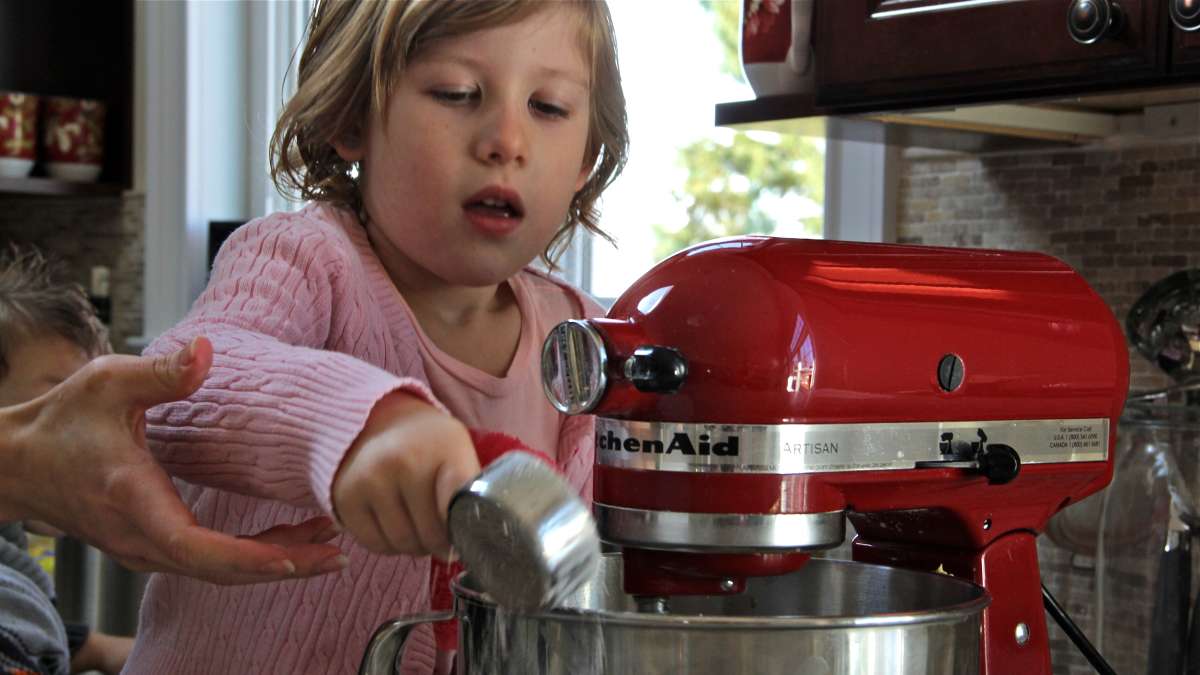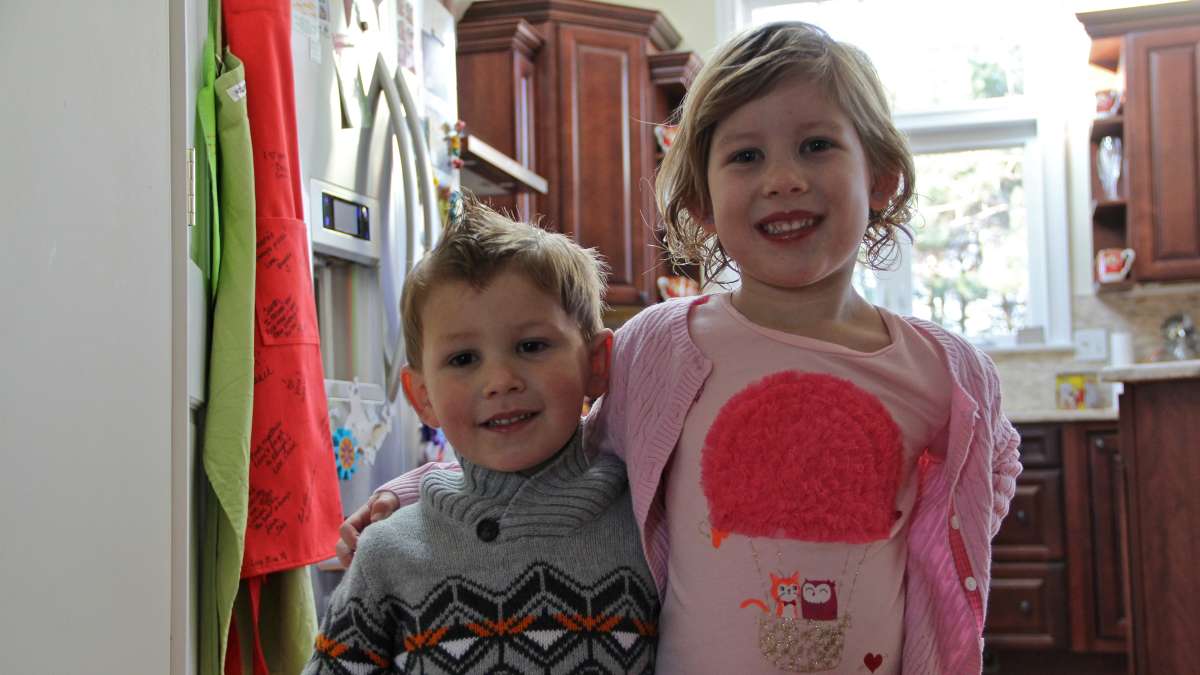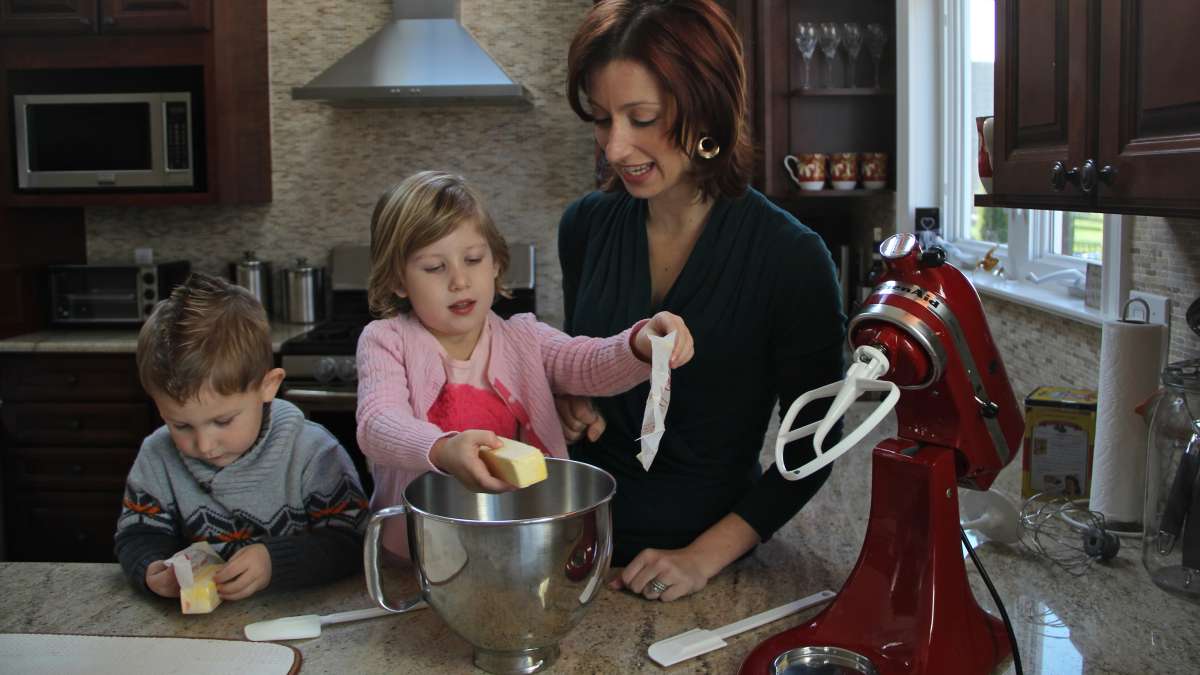Baking as a frontal lobe workout: how scientists use their skills at home
ListenA scientist who studies brain development in children, and is also the mom of two small kids is sure to have a lot of inner dialogue reviewing their parenting performance.
“I probably overanalyze the things I do,” admits pediatric neuropsychologist Sarah Allen. “Did I get the most brain development during that time, did I teach them the most I could, in terms of regulating their behavior, what does the science say and how do I put that into practice? I’m constantly doing that,” Allen said.
Allen loves her job at Philadelphia College of Osteopathic Medicine, she loves being a mom to son Carter, who is three, and daughter Juliana, who is four. At home, she can happily combine her mom and scientist skills to foster so-called “executive skills.”
She explained, “it’s how you use your brain, it’s the CEO, that regulates what is allowed out, what’s allowed in, so it’s about the frontal lobe.”
One way to build these skills is to ask lots of questions, rather than telling kids what to do next. Allen says the holiday season offers lots of opportunities to practice these skills.
“One of our traditions is we bake a different kind of cookie each week from Thanksgiving through the holidays, and baking is a great activity for executive skill building she said. “Do we pour the chocolate chips in first, or do we put the butter in first? So that’s very good for sequencing.”
As Allen and her kids started making the cookies, she asked them what goes in first. The kids correctly picked flour and Allen added, “how would I know if I wasn’t sure, what would I look at?” It’s these kind of questions that foster kids’ ability to tackle tasks on their own.
“I could tell them this goes first, this goes second, this goes third, but now Juliana is thinking about what goes last, and what comes in the middle. And those are really big frontal lobe skills. That’s all about executive skills to be able to sequence those events,” said Allen.
As Juliana struggled to scoop the flower into the bowl without spilling it, Allen remarked, “They’re not always perfect, but they’re delicious.”
Allen believes that failure, rather than success, makes for great learning opportunities. “There’s a concept called productive failure, and that’s actually how kids learn the best. So they need to try, and fail, before they can succeed. So this is just a way of doing that. If the cookies don’t come out, then they’ve failed and then they’ll try again. And they learn better.”
Or in other words, “You have to allow the mistakes and allow the mess. That’s hard, as a parent, to do.”
It may be messy, but Carter and Juliana are confident in their cookie making abilities.
“What do you think, are these going to be good cookies, or great cookies?” Allen asked. “Great cookies” is the assured reply.
WHYY is your source for fact-based, in-depth journalism and information. As a nonprofit organization, we rely on financial support from readers like you. Please give today.




